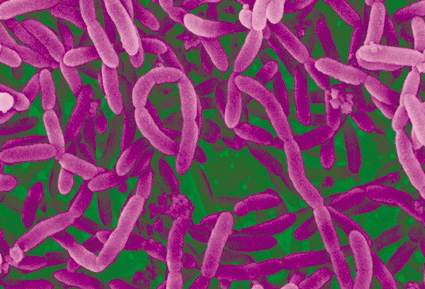Researchers at McMaster University have made an interesting discovery about those “gut feelings” we sometimes have. It’s a big discovery linked to little organisms.
They have conclusive evidence that bacteria residing in the gut can influence brain chemistry and behavior.
The findings are significant because many common types of gastrointestinal disease, like including irritable bowel syndrome, are usually linked to anxiety or depression. Furthermore there have been assumptions that some psychiatric ailments, such as late onset autism, may be associated with an abnormal bacterial content in the gut.
“The exciting results provide stimulus for further investigating a microbial component to the causation of behavioral illnesses,” said Stephen Collins, professor of medicine and associate dean of research at the Michael G. DeGroote School of Medicine.
Collins and Premysl Bercik, assistant professor of medicine, conducted the research in the Farncombe Family Digestive Health Research Institute. The research appears in the online edition of the journal Gastroenterology.
The gut of every human is a group home for about 1,000 trillion bacteria that we live peacefully with. These tenants are responsible for a number of tasks that are essential to health: They gather energy from the diet, protect against infections and provide nutrition to cells in the gut. Interfering with these friendly bacteria can result in lethal conditions, like antibiotic-induced colitis from infection with the “superbug” Clostridium difficile.

In work with healthy adult mice, the researchers demonstrated that disrupting the normal bacterial content of the gut with antibiotics leads to changes in behavior; the mice became less cautious or anxious. This change was partnered with an increase in brain derived neurotrophic factor (BDNF), which has been linked to depression and anxiety.
When oral antibiotics were stopped, bacteria in the gut went back to normal. “This was accompanied by restoration of normal behavior and brain chemistry,” Collins said.
To check whether bacteria can influence behavior, the researchers colonized germ-free mice with bacteria taken from mice with a different behavioral pattern. They observed that when germ-free mice with a genetic background connected to passive behavior were colonized with bacteria from mice with higher exploratory behavior, they became more active and daring. Likewise, normally active mice became more passive after getting bacteria from mice whose genetic background is associated with passive behavior.
While past research has dealt with the role bacteria play in early brain development, Collins said this latest research shows that while many factors determine behavior, the nature and stability of bacteria in the gut appear to influence behavior and any disruption from antibiotics or infection might produce changes in behavior.
Bercik said that these results lay the foundation for exploring the therapeutic potential of probiotic bacteria and their products in the treatment of behavioral disorders, particularly those associated with gastrointestinal conditions such as irritable bowel syndrome.
The next time you wonder why someone behaves the way they do, keep in mind there might be a good chance that it’s coming from the gut, and not their brain.






